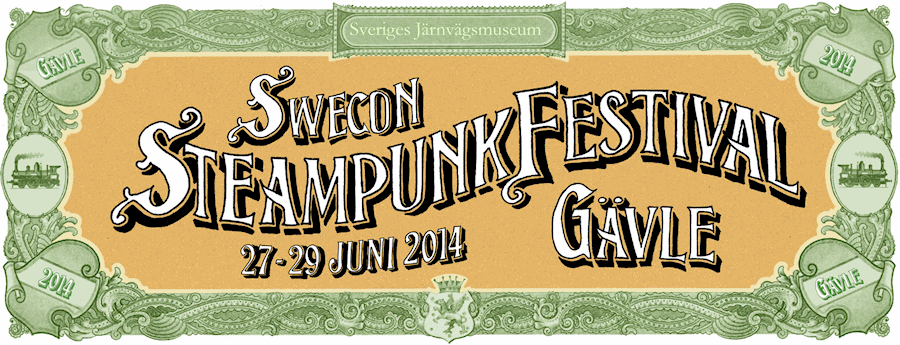Vi har lovat att ni får fler presenter, och vi håller vårt löfte: Här kommer en spännande intervju med vår hedersgäst Chris Wooding:
1) If you were to give away a Steampunk-book for Christmas, which one would it be?
Chris: Oh wow, well I guess that brings up the whole question of what Steampunk actually is and how you define it – a question that will probably take me the entire convention to figure out! But I think I’m going to go with The Scar by China Mieville, because for raw imagination, there aren’t many that match him, and that’s my favourite of his.
2) What do you find most fascinating about Steampunk?
Chris: I like that it’s still a relatively new sandbox to play in. Despite the limitless possibilities in invented world fiction, the vast majority of genre books are pseudo-European fantasy or far-future SF, and both genres have been going so long that they’ve developed many tropes which define and – to some extent – limit them. Steampunk offers a different set of rules, and they’re much less defined in my mind, which is why I like it. Nobody’s really told us what Steampunk has to be yet.
3) In your opinion, what are the main parallels or differences between Science Fiction /Fantasy and Steampunk?
Chris: There are lots of parallels and differences. I suppose one difference is that lots of Steampunk fixes itself to a real historical time – the Victorian era – in a way that fantasy and SF don’t. Even Steampunk not set in Victorian times takes its cues from that. That’s always interested me about it: it provides a feel and an atmosphere based on our own – arguably misremembered and rose-tinted – vision of our Victorian past.
4) Is there an author (dead or alive) you really would like to meet, and if so, why?
Chris: Tolkien. Because he seems like a stout feller to have a pint in the pub with. Oh, yeah, and because of The Lord Of The Rings and that.
5) Is there a difference between writing for children, young adults, and grown-ups, and if so: What is it?
Chris: Yes, there is, but it’s mostly in the issues you choose to address and the way the characters react. There’s no point writing a book about corruption on the stock market for a child, for example. A book aimed at children would tend to have child protagonists dealing with relationships and adventures the way a child would, thinking and feeling like a child. I think fantastical stories cross age boundaries more readily than some other types of literature, because fantasy is pretty much universal to the human condition. That’s also why it’s awesome.
6) Ursula LeGuin said that Science Fiction /Fantasy is not about the future but about the present. Does something similar apply to Steampunk, too?
Chris: I think all literature is about the present. We enjoy and understand stories only because we can relate them to our own experiences and our present-day way of thinking. I think some of the appeal of Steampunk is down to a craving for a lost time where we could relate to the machinery around us, where we could see the cogs and gears, before everything became plastic and technology became incomprehensible and we no longer felt in control of our world. That’s a direct response to the present day.
7) Finish following sentence: ”Steampunk taking place in space…”
Chris: ”… was good enough for H.G. Wells, so it’s good enough for me.”
